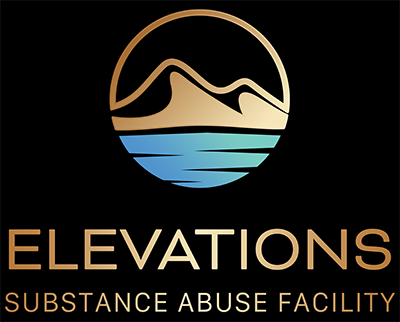Aftercare Planning
It’s not easy to overcome addiction. Patients often spend time in an inpatient facility to undergo detox and therapy before they get clean. But what happens when they get out into the real world?
Unfortunately, many patients relapse. Statistics show the 75% of all people that go through recovery for alcohol will go back to drinking within one year of treatment. 80-95% of people that do heroin or smoke cigarettes go back to their old ways in the same time frame.
You may wonder why people go back to using after getting out of rehab. Here are some factors.
Stress: People often use drugs and alcohol as a way to deal with stress. When they are in a rehab facility, they are in a soothing atmosphere away from the stresses of everyday life. When they go back into the real world, those stresses return. Unsure of how to deal with them, they go back to using.
Exposure to Old Friends: When patients are in a rehab center, they are removed from the people they used to use with. When they get home, they meet up with those people again. Their old ‘friends’ may tempt them to start using again and they will be unable to resist.
Seeing Old Places: When people get out of rehab, they may pass by bars they used to drink at or party houses where they used to do drugs. If they are feeling particularly stressed, they may want to pay those places a visit.
It is difficult to stay clean after returning from rehab, but many clinics offer aftercare. This means they continue to provide treatment to patients to give them the support they need to maintain sobriety after checking out of rehab.
The information below will review what’s involved in drug rehab aftercare, so you understand the steps that are taken to help maintain sobriety after you check out.

After you check out of rehab, you will likely be checked into a drug addiction aftercare program. This can take several forms including the following:
Sober Living: Some patients check into a sober living facility after rehab. They are permitted to venture out of the facility, but they are usually given curfews. While in the sober living facility, they will continue to undergo group therapy. They will also be taught job skills so they can be successful when they get back to real life.
Outpatient Care: Outpatient care requires splitting your time between therapy and everyday life. There are three main types of outpatient care, and they vary according to how much therapy you need. Partial hospitalization requires the patient to stay at the facility 6-8 hours a day and live with their family the rest of the time. Intensive outpatient therapy requires a few visits a week and regular outpatient will be just one or two visits a week.
Other Activities: The facility may host other activities throughout the year including barbecues, get-togethers, group therapy meetings, and so on. These may be hosted weekly, monthly, or on specific dates throughout the year. They are made to make the patient feel like they are part of something and to provide social activities they can look forward to. They are particularly helpful to patients that don’t have a family or a strong support group.

What Sets Us Apart
Support & Care
We believe the road to recovery begins and ends with a caring and empathic support team.
Experience
Our staff is all highly skilled and trained in the up-to-date techniques and recovery procedures.
Passion For Results
We take pride in what we do and in helping our clients find long-lasting relief and recovery.
There are many reasons why drug rehab aftercare is beneficial to patients. These include the following:
They Provide Patients with Skills
Oftentimes, patients go back to the ‘real world’ with no place to turn. They may not have job skills, or they may have let their skills get rusty when they were using drugs or alcohol.
Sober living facilities teach patients skills so they can get a job and feel like productive members of society. These feelings of self-worth will keep them from going back to their old ways.
Addiction is a Chronic Disease and Requires Ongoing Treatment
A drug addict never completely gets over their addiction. That’s because addiction is a chronic disease. So, let’s compare it to another chronic disease like heart disease.
Unfortunately, there is no cure for heart disease. You can only manage its symptoms with ongoing care.
Addiction is similar. You never completely lose your dependent tendencies. You can only work to manage them. This requires continued treatment. Visits with a therapist will help you keep them under control.
New Stressors Arise
When you are in therapy, your counselor will work with you to come up with healthy coping mechanisms that replace the urge to use. But unfortunately, this doesn’t prepare you for every situation. If something particularly terrible happens, you may be tempted to go back to using drugs.
When these unusual situations arise, you may not know how to deal with them, but a counselor can help. Instead of taking a drink, you can schedule a therapy session that keeps you strong during bleak times.
Staying Healthy
If you do drugs for long periods of time, it can begin to negatively affect mental and physical health. Even after you get clean you may continue to experience health issues. Your aftercare should include physical checkups to ensure you maintain excellent health after you complete treatment.

Drug rehab aftercare is typically planned when you start your treatment. The medical staff will work out the course of action that they feel is best for you.
For example, if your drug addiction was very serious, they may put you in a partial hospitalization program to start. This will be reduced to intensive outpatient and outpatient treatment as dependent tendencies improve.
If your drug addiction was not that bad and you have a supportive home life, you may start on an intensive outpatient or outpatient program after getting out of residential treatment.
If the clinic feels it is necessary for you to be in a safe environment and undergo care and learn job skills, they may place you in a sober living facility before you go back to everyday life.
The facility will assess your situation to determine the option that’s best suited to your needs.
Find Lasting Recovery
When looking for a treatment center that’s right for you, it’s essential to find one that offers drug addiction aftercare. This will ensure that you are able to maintain sobriety long-term.
There are many clinics that offer drug addiction aftercare, but Elevations is recommended for the unique approach we offer.
At Elevations, we start with an assisted detox that allows patients to rid their bodies of harmful toxins. We use medications to relieve withdrawal symptoms and provide a comfortable atmosphere for patients to get clean. We offer supervision to see to it that patients don’t relapse during this difficult stage of recovery.
After detox is completed, patients move on to our therapy program. We use a dual diagnosis approach that simultaneously treats the addiction and the emotional disorders that are at addiction’s root. This double-edged approach is recommended for long-term recovery.
All inpatient treatment occurs in a luxury boutique environment in the upscale neighborhood of Northridge. Patients are provided all the amenities are modern life and chef-prepared meals. Our six-bed facility ensures the ultimate privacy and our 2:1 patient to staff ratio means you get the care you need when you need it.
After patients graduate from our program, they move on to aftercare. We provide ongoing counseling and 12 step meetings giving patients the tools they need to maintain sobriety. We also host regular events to create a support group for our alumni.
Addiction is not easy to fight. Getting back into the ‘real world’ after recovery could be your biggest obstacle.
Elevations provide comprehensive aftercare to see to it that you make a healthy adjustment. We provide counseling to ensure relapse doesn’t occur. We give you the support you need to get sober and stay sober.
Reach out today to find out how you can start on a path to happier, healthier living.
